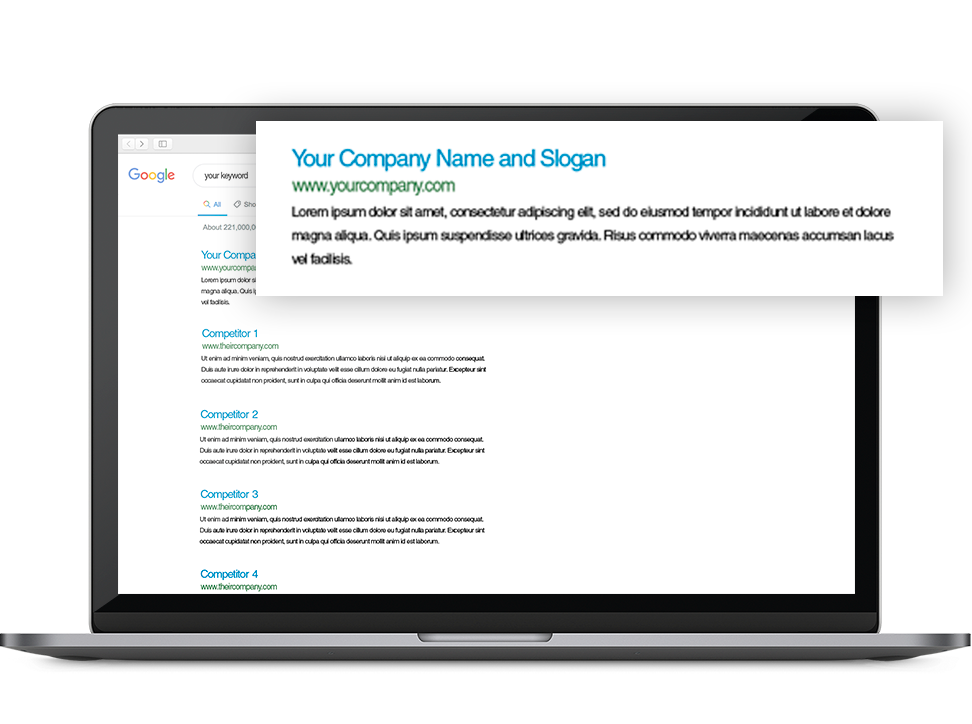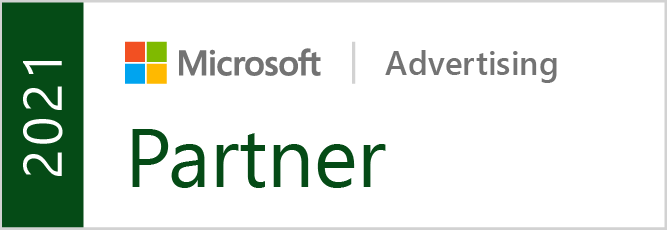Home Service PPC Advertising Solutions
Running home service PPC campaigns isn’t like advertising other businesses. Your potential customers aren’t casually browsing; they have urgent problems. Their water heater failed, AC stopped working, or garage door won’t close. This urgency changes everything about your advertising approach.
Most home service businesses treat PPC campaigns like retail advertising, focusing on brand awareness and general marketing strategies that don’t work for emergency situations. The result? Wasted ad spend and missed opportunities to connect with potential customers ready to hire immediately.
As Seen in:

Why Home Service PPC is Different
Home service PPC operates uniquely compared to other industries. Your potential customers often need immediate help. When someone’s furnace breaks in January, they’re not researching for weeks. They need heat restored quickly and will hire whoever seems most reliable and available.
This creates opportunities other industries don’t have. Your PPC campaigns capture people ready to make purchasing decisions immediately. But your campaigns need completely different structures than what works for other business types.
Most residential home services companies struggle because they apply generic advice that ignores emergency situations or local service areas. Home services companies need strategies built specifically for their market dynamics.
Traditional PPC Advice Doesn't Work Here
Most PPC guidance was written for SaaS companies or ecommerce stores with long sales cycles. Home services work differently. Customers convert within hours, not weeks. They’re dealing with emergencies causing real inconvenience.
Your PPC strategy should focus on immediate conversion, not long term nurturing. When people type “roof repair near me,” they have an active leak, not future planning needs.


Google Ads: Your Foundation for Success
Google ads capture people actively searching for your services. When someone types “emergency plumber,” they’re telling you exactly what they need. Your job is showing up with the right message immediately.
Most home service businesses spread their budget too thin trying to advertise everything they offer. This rarely works because specialists focusing their entire budget on specific services outcompete generalists. Pick one service you excel at and dominate that space first. Build profitability there, then expand. This focused approach generates better results than advertising everything simultaneously.
Search Campaigns That Generate Job Bookings
Create separate PPC campaigns for each major service: emergency plumbing, water heater repair, drain cleaning, bathroom remodeling. Each attracts different potential customers with varying price sensitivity and urgency levels.
Emergency services justify higher bids because customers convert quickly when dealing with crises. Routine services need lower bids but provide steady lead flow. Separating these into different PPC ad campaigns allows proper optimization of each.
Geographic targeting becomes crucial since you can’t serve unlimited distances. Wasting money on clicks from people 50 miles away makes no sense if you only service 20 miles. Set careful location targeting and adjust bids based on area profitability.


Local Services Ads: Google's Special Program
Local Services Ads appear above regular Google ads using pay per lead instead of pay per click. Google verifies your credentials and displays reviews prominently. The qualification process involves background checks and license verification, but generates higher quality leads than regular PPC campaigns.
Coverage varies by location and service type. If available for your home service business, include Local Services Ads in your strategy. Leads tend to be more qualified, and the pay per lead model offers more predictable costs than traditional advertising.
Keyword Research for Immediate Results
Home service keyword research differs from other industries. You need keywords indicating immediate purchase intent and local relevance, not informational content or brand awareness. The most valuable keywords include location modifiers, urgency indicators, or specific problems. “Water heater installation Phoenix” or “emergency garage door repair” indicate much higher likelihood to hire than “HVAC maintenance tips.”

High Intent
High intent keywords include “repair,” “service,” “installation,” “emergency,” “near me,” or geographic locations. These indicate readiness to hire professionals.
Focus initial PPC campaigns on high intent keywords even if search volume seems lower. Higher search intent means better conversion rates, which matters more than raw traffic for home services lead generation.
Information Keywords
Informational keywords like “how to,” “DIY,” “cost of” typically aren’t ready to purchase immediately. Someone searching “how to fix leaking faucet” probably wants to do it themselves, not hire a plumber.
Use Google Keyword Planner to identify which search terms actually get volume in your market, but prioritize relevance over volume.

Location Targeting for Service Areas
Set primary service areas at normal bids, secondary areas 20% lower, and exclude areas you can’t serve. This maximizes coverage while protecting budget from wasted spending.
Distance affects both costs and close rates. Farther jobs require higher bids but have higher travel costs and lower margins. Factor these economics into targeting decisions rather than treating all areas equally.
Writing Ad Copy That Converts
Ad copy for home service businesses must establish trust and communicate availability quickly. Potential customers face stressful situations and need reassurance you’re legitimate, professional, and available promptly. Most home service ad copy sounds identical to competitors. Generic phrases like “quality service” don’t differentiate you. Your ads need specific details making people choose you over the next company in search results.


Trust Signals That Work
Trust trumps everything in home services. Customers invite strangers into homes for work that could cause expensive damage if done wrong. They need confidence you know what you’re doing.
License numbers, years in business, and insurance build immediate credibility. Instead of “licensed and insured,” include actual license numbers or service duration. “State license #ABC123, serving Phoenix since 2015″ provides specific verification versus generic claims.
Customer review counts work well when space allows. “Over 500 five star reviews” gives social proof. Ensure claims are accurate; exaggerated information backfires when potential customers verify it.
Response Time Messaging
Response time often determines which home service company gets the job booking, especially for emergencies. If you respond faster than competitors, highlight this clearly. “Same day service guaranteed” addresses primary customer concerns.
Don’t promise what you can’t deliver consistently. Advertising 24/7 availability without actually answering night calls generates negative reviews and wastes ad spend. Be honest about hours and emphasize other advantages.
Emergency services justify stronger urgency language than routine work. Match messaging to service type and customer mindset for each PPC ad.


Landing Pages That Convert Clicks to Customers
Your landing page determines whether PPC ad clicks become actual contacts. Home service customers worry about letting contractors into homes, so landing pages must address concerns while making contact effortless. Many businesses send PPC traffic to homepages trying to serve too many purposes, confusing visitors about next steps. Dedicated landing pages matching ad messaging convert better by continuing conversations ads started.
Essential Landing Page Elements
Display contact information prominently in multiple formats. Some prefer calling, others want forms, some like texting. Multiple options capture more qualified leads.
Real photos of your team, vehicles, or completed work build legitimacy. Generic stock photos look fake; authentic photos build trust. Before/after shots work especially well for roofing, landscaping, or remodeling.
Include service area information so visitors quickly determine if you can help them. Simple maps or city lists eliminate confusion and reduce wasted leads from people outside your territory.


Mobile Optimization is Critical
Most home service searches happen on mobile devices, especially emergencies. Someone with a broken water heater at 8 PM won’t wait for computer access. Landing pages must work perfectly on smartphones.
Large, clickable phone numbers work better than small text links. People want to call immediately during urgent problems. Prominent click to call buttons make this effortless.
Page loading speed matters tremendously on mobile connections. Slow pages lose potential customers who move to competitors before your page loads. Optimize images, minimize code, choose fast hosting.
Budget Management That Makes Sense
Effective budget management separates profitable campaigns from expensive experiments. Home service businesses have seasonal fluctuations and varying margins between services, requiring adapted budgeting approaches.
Focus ad spend on smaller sets of high value keywords rather than spreading thin across everything. Dominate valuable keywords instead of showing occasionally for many terms.


Calculate Affordable Cost Per Click
Understanding unit economics determines sustainable bid levels. What’s your average job value? What percentage of leads become customers? How much profit per job?
If average plumbing jobs worth $400 and you close 25% of leads, each lead worth $100 average. If 10% of clicks become leads, you can afford $10 per click while breaking even. Target $6-8 per click for profitability depending on margins.
This math changes significantly between service types. Emergency repairs might have higher close rates but smaller job sizes. Major installations could have lower close rates but much higher values. Calculate separately for different services.
Seasonal Adjustments
Most home service businesses experience seasonal demand requiring budget reallocation. HVAC companies get more cooling calls in summer, heating in winter. Roofing companies spike after storms. Plan budget allocation around patterns rather than consistent year round spending.
Off season opportunities often get missed. Offering discounts through PPC campaigns can generate leads when competition is lower and calendars have availability.


Advanced Strategies for Competitive Markets
Once basic campaigns are profitable, advanced strategies help capture additional market share in crowded markets. Remarketing campaigns re engage website visitors who didn’t contact you initially. Home service customers often research multiple companies before deciding, so staying visible during consideration influences final choices.
Display Ads
- While search ads generate most immediate results, display ads on Google Display Network build awareness and support other marketing. Display ads work particularly well for retargeting previous website visitors.
Video ads on platforms like YouTube can showcase work quality and build trust before potential customers visit websites.
Social Media Platforms
Social media platforms like Facebook and Instagram offer sophisticated targeting reaching homeowners based on demographics, interests, behaviors indicating potential service needs.
Negative Keywords Protect Budgets
- Negative keywords prevent PPC ads from showing for irrelevant searches. "Plumbing jobs" indicates employment seekers, not customers. "DIY electrical repair" shows people wanting to do work themselves.
- Build comprehensive negative keyword lists starting with obvious terms like "jobs," "career," "DIY," "free," then expand as you identify other irrelevant search terms generating clicks but not qualified leads.
Tracking Results with Analytics and Call Tracking
Focus on metrics directly relating to business results, not just website traffic. Cost per customer matters more than cost per lead since some sources generate cheaper leads converting poorly while expensive leads become customers at higher rates.
Call Tracking is Essential
Many home service customers prefer calling over forms, especially for emergencies. Without tracking phone calls from PPC campaigns, you’re missing huge conversion portions and making optimization decisions on incomplete data.
Call tracking assigns different phone numbers to campaigns, showing which ads generate calls generated from marketing efforts. Investment typically pays for itself through optimization data.
Customer Lifetime Value
Many customers become repeat clients or refer others. Factor lifetime value rather than just initial job values when calculating campaign profitability. A customer paying $300 initially might generate $1,000+ over years including repeat business and referrals.
This perspective often justifies higher acquisition costs than seem profitable initially.

Common Mistakes That Waste Money
The biggest mistake is advertising everything instead of focusing on most profitable services. Specialized campaigns work better than jack of all trades approaches. Geographic targeting errors waste significant money. Targeting too broadly wastes money on irrelevant clicks; too narrowly misses potential customers. Use layered targeting with bid adjustments for different areas. Ignoring mobile experience kills conversions regardless of ad quality. Test landing pages on actual mobile devices regularly, not just browser resizing.
Building Long Term Success
Successful home service PPC requires ongoing optimization rather than set and forget management. Markets change, competitors adjust, seasonal factors influence performance throughout the year.
The most successful campaigns evolve continuously based on data and conditions. What works in January needs adjustment by July. Regular monitoring keeps campaigns profitable long term.


Integration with Other Marketing
PPC works best coordinated with other home service marketing efforts. Use campaign data to inform local SEO strategy, social media content, service offerings based on customer interest.
Customers research across multiple channels before hiring decisions. Consistent messaging across touchpoints reinforces brands and builds trust with potential customers.
What Actually Matters for Success
- Companies succeeding long term focus on solving customer problems rather than generating website traffic. They understand unit economics and make data driven bidding decisions.
- Most importantly, they treat PPC as part of running professional service businesses, not magic marketing solutions. Best PPC results come from companies answering phones promptly, showing up when scheduled, doing quality work generating positive reviews.
- Your PPC campaigns can generate qualified leads consistently, but converting leads into satisfied customers depends on excellent service delivery. The best advertising can't fix fundamental business operations or customer service problems.
- Focus on systematic processes for handling inquiries, scheduling appointments, following up with potential customers. Many home service leads are lost through poor response times or unprofessional communication, not advertising problems.
- Focus on systematic processes for handling inquiries, scheduling appointments, following up with potential customers. Many home service leads are lost through poor response times or unprofessional communication, not advertising problems.

We are a digital marketing agency building SEO campaigns and solutions to help brands achieve their goals and generate revenue. Locations we serve.
Learn









